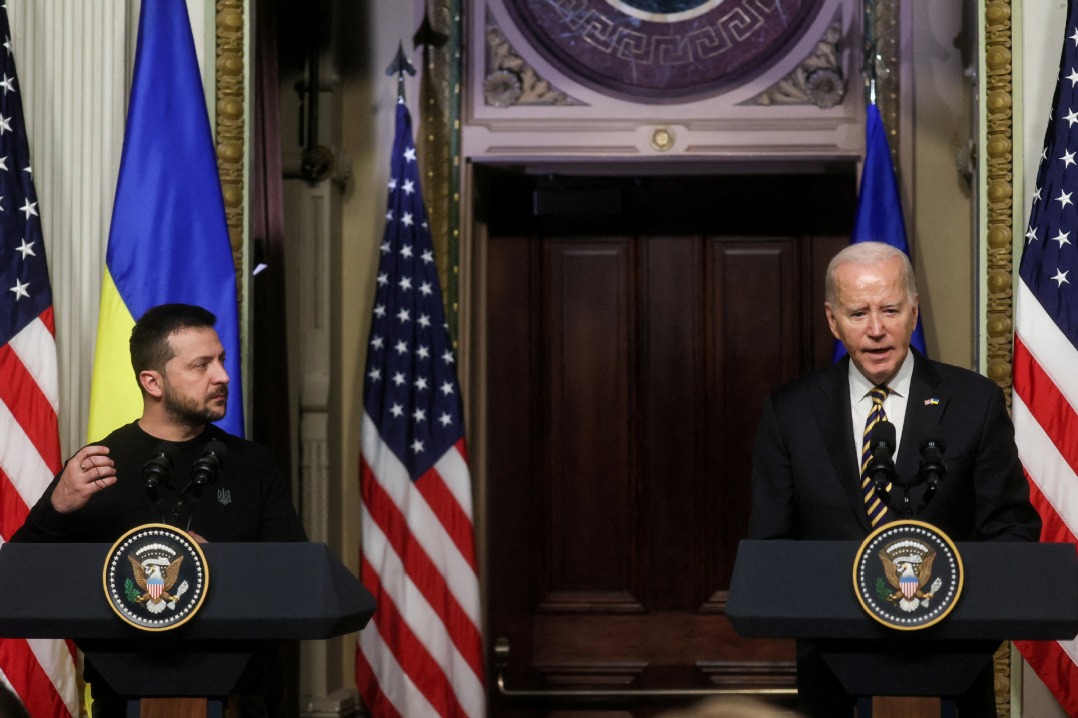'Stress vaccines' could soon protect our health from fast-paced work
By Barry He | China Daily Global | Updated: 2021-01-29 11:11
The Chinese tech industry is one of the most fast-paced and hardest working fields ever to exist. This, however, can take a mental toll on the geniuses laboring to develop the next generation of gadgets and services.
In recent years, the tragically premature and sudden deaths of young entrepreneurs such as Zhang Rui, which TechWire Asia called "a sobering cautionary tale", have highlighted the need to inoculate people against this danger.
Playing an important role in a budding mobile health app, Zhang was regularly working 70 hour a week and stated openly that he was suffering from several health conditions in dealing with the pressure that came along with securing the company's development and funding. Since he passed away from a heart attack, many people in the industry have reflected on the deeply competitive nature of technology and similarly fast paced industries, and whether the consequences are worth it.
The very first "stress vaccines" are being researched, allowing users to be injected with a small dose of chemicals which can safely allow someone's brain to deal with stress better over a period of time. Researchers in the United Kingdom and United States hope in the future to offer this to key workers in the military and emergency services.
Before delving into how this innovation works, it is important to note that stress is an essential physiological response for our survival to adapt to the world around us. A reaction in the brain sends an emergency response to trigger the infamous fight or flight system. Cortisol keeps the stress response active, and suppresses other bodily functions, such as our digestive system, immune system and even certain brain functions, which is also why it is harder to create calm rational arguments or thought processes when in a panicked state.
Severe states of stress, especially when prolonged, can result in mental health issues such as post traumatic stress disorder and depression. Raised levels of cortisol and adrenaline can damage blood vessels, which importantly then increase the risk of heart attacks and stroke. Diabetes, weight gain and a compromised immune system are all also additional factors, meaning that stress is a major public health issue globally, which will only become more severe as industrial pressures build.
Creating a stress "vaccine "relies on several potential chemical candidates. The human body creates a chemical called neuropeptide Y (NPY), which acts as a switch to turn off the body's cortisol response. A study from Mount Sinai hospital in New York demonstrated that injecting the chemical intranasally to subjects, who then were told to read a traumatic article, lowered their stress responses on average.
Another promising candidate is the medical anaesthetic ketamine. One study at the University of Columbia, on mice, indicated that a single dose of ketamine could protect the animals from prolonged stress by increasing the brain's ability to grow new neurons and connections.
Human studies are currently underway. Healthy volunteers in one study received a dose of ketamine, and then a week later were asked to give a presentation to a very stern looking panel in a pressured environment. Initial results from similar studies indicate that a low dose of ketamine could protect the human brain from stress for as long as several months.
It is important to note, however, that ketamine has the potential to be abused as a recreational drug, and doses given in stress inoculations would be far lower than any dose that would be psychoactive, or indeed used in a legitimate medical anaesthetic setting. James Murrough, who led the study, said in a statement: "Perhaps we could give it to soldiers about to deploy on a mission, or to firefighters or police … There may be a window of time after stress where the drug still may be useful."
The idea that we could soon be vaccinated against the severe detrimental impact of stress when we are in challenging periods of our lives may be comforting. However, such medical research is still very much in its infancy. For now, we have more natural "vaccines" available to us that still have solid research benefits backing them. Remembering to exercise, eat healthy and socialize with friends are all proven ways of reducing stress in our lives.
Barry He is a London-based columnist for China Daily.























